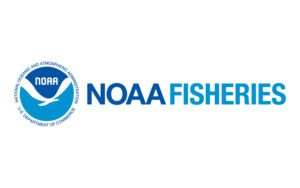
NOAA Fisheries has recommended spending more than $16 million for 13 tribal priority fish passage projects in seven states, including Alaska, California, Idaho, Oregon and Washington.
In Alaska, the allocations include $1.59 million to the Chickaloon Native Village, $425,920 to Sealaska Corp., and up to $2.9 million to The Eyak Corp. to remove fish passage barriers and for stream-crossing barriers.
In California, the Round Valley Indian Tribes are allocated $1.3 million to engage in dam removal at the Potter Valley Project on the Eel River. Idaho’s Shoshone-Bannock Tribes on the Fort Hall Reservation are receiving over $1 million to restore fish passage and habitat connectivity in the Yankee Fork watershed.
The Confederated Tribes of the Umatilla Indian Reservation in Oregon are to receive up to $3.3 million over three years to remove or remediate barriers to fish migration in the Umatilla, Walla Walla and Grand Ronde watersheds.
In Washington, the Nooksack Tribe is allocated $456,206 to work collaboratively with the Lummi Tribe, city of Bellingham and Washington Department of Fish and Wildlife on a plan for city-owned passage barriers that address infrastructure needs and meet fisheries goals.
The Yakama Nation is to receive up to $1.8 million over three years to remove barriers on the Snake Creek for Endangered Species Act-listed Middle Columbia River steelhead in the Yakima River watershed.
The Cowlitz Indian Tribe is allocated $2.6 million to remove Kwoneesum Dam on Wildboy Creek, a tributary to the West Fork Washougal River in the Columbia River watershed. The Skagit River System Cooperative is set to receive up to $1.3 million over three years to reopen access to habitat blocked by undersized or improperly installed culvers on three sites of interest linked to the Swinomish Indian Tribal Community and Sauk-Suiattle Tribes, Martin Slough, Hatchery Creek and Everett Creek.
